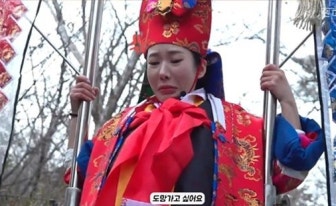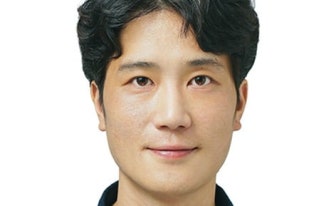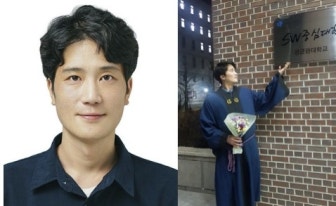Jung Hyun-mok
The author is a senior culture reporter at the JoongAng Ilbo.
This Chuseok, living rooms across Korea turned into karaoke rooms.
Families sang along as KBS aired the concert special “Cho Yong-pil: This Moment Forever.” My spouse and I, who could not recall our last visit to a karaoke booth, joined in too. For two and a half hours, Cho’s songs compressed lifetimes — his and ours. Every melody summoned memories of a particular moment in life.
At 75, Cho’s voice still carried the same strength and precision. His passion for music, undiminished after 57 years, was unmistakable.
Our college-age son once asked, “What’s so special about Cho Yong-pil?” But as soon as “Bounce” (2013) came on, he sang the chorus without hesitation. Cho was 63 when he released the song, proving that his music continues to transcend generations.
A KBS producer once called him a “hard-working genius,” and that description fits. Cho was gifted with an extraordinary ear and a natural sense of melody, but he never rested on talent alone. After rising to fame with “Come Back to Busan Port” (1972), he deliberately chose the rock ballad “Woman Outside the Window” (1980) as his next single, breaking away from the boundaries of trot. It was a declaration of artistic independence.
His innovation reached beyond genre. The synthesizer-driven sound of “Short Hair” (1980) was ahead of its time, while the playful cry of “Mom!” in “Red Dragonfly” (1981) was strikingly new. Singer-songwriter Shin Seung-hun later said the lyric inspired one of his own songs, and director Park Chan-wook once remarked that Cho’s work “opened the door to a new era.”
Cho has always stayed a step ahead of trends. At home, he kept an AFN (American Forces Network) radio running to catch the latest Western sounds — a decades-long habit that reflected his curiosity. “There is no end to studying music,” he often said. Now, YouTube is his classroom.
His concerts are famously disciplined — no long speeches, no guest performers. For more than two hours, he delivers a near-perfect live performance. Musicians still recall how he once scolded a late band member during rehearsal, warning, “It took years to climb this far, but falling takes only a moment.” His perfectionism was never about ego — it was about respect for the craft.
The essence of Cho’s music, though, lies in dreams. His favorite song, “Dream” (1991), was inspired by a newspaper story about young job seekers coming to Seoul. It captures the loneliness of youth chasing opportunity in a cold city, yet the message is hope: never let go of your dream. Behind the cheers and spotlight, Cho’s own struggles give authenticity to that optimism.
Fourteen years ago, he offered a message to struggling youth: “Do not doubt your dream. The moment you doubt, success fades away.” That advice still resonates. His ultimate wish, he once said, is “to die singing on stage.”
Cho’s songs have always carried truth and reflection. Critics call him a seeker in music. In “Song of the Wind” (1997) he sings, “We must learn that failure and pain cannot be avoided / If love is the answer, I will love everything in this world.” In “Now I wish it was so” (1990), he wishes to tell those leaving on a long journey, “The precious things are right beside you.”
Today, his songs embody healing and inclusion. He embraces both generations — the older one that has lived burdened by survival, and the younger one enduring uncertainty. In “It’ll Be Okay” (2024), he comforts the weary: “When you’re tired and worn out, it’s okay to rest here for a while / It’s okay, even if you’re late / Believe in yourself.”
Loneliness, along with dreams and love, has been a constant theme in Cho’s work. Like the “Leopard of Kilimanjaro” (1985) in one of his most iconic songs, his life has been a solitary pursuit of perfection. His poignant ballads “Jin” (2003) and “I Want to Walk” (2013) — songs of longing for a loved one who has become a star in the night sky — resonate deeply, especially since his wife’s passing.
Even his reflections on solitude speak for others. In “Also My Life” (2003), he sings, “Even if there is no love left, this life is still mine / It’s the road I must take, my life to live.” His voice carries personal pain but transforms it into collective solace.
Friends sometimes ask what song I would want to hear at the end of my life. My answer never changes: a Cho Yong-pil song. But which one? With so many to choose from, I may need more time — and perhaps more wisdom — to decide.
This article was originally written in Korean and translated by a bilingual reporter with the help of generative AI tools. It was then edited by a native English-speaking editor. All AI-assisted translations are reviewed and refined by our newsroom.

















































